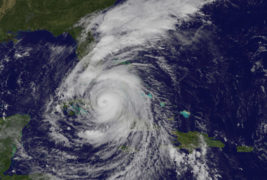Florida Loquat News
The Newsletter of The Florida Loquat Festival
No. 24
September 20, 2017
Celebrating Florida’s Urban Fruit
An Ecology Florida/Friendship Farms & Fare Annual Event
SPECIAL EDITION
Hurricane Irma
Our thoughts of care, comfort, and positive expectancy are shared with all readers and subscribers to the Florida Loquat News. As most readers know, hurricane Irma impacted nearly the entire state. Lives were lost and property damage was extensive. We share in the sadness and discomfort of those who experienced losses. We share in the sense of relief of those who had little or no damage.
Agricultural losses appear significant, at least from reports researched by the News. Early estimates are that 50% of the state’s citrus harvest was lost, and the Florida Farm Bureau Federation estimates total agricultural losses to be in the billions.
Here is a link to a story in USA Today on agricultural losses in Florida.
And here is a link to a story in the Palm Beach Post
Coverage of the damage and loss focused on large-scale industrial agriculture systems, which dominate the state (and the nation, for that matter). For our part, here at the News, we want to remind Floridians that locally focused farms, gardens, community gardens, and other human-scale agrarian enterprises were also impacted, just like the industrial farms and groves. That impact tends not be covered by the media.
It is worthy of note, however, that smaller, agrarian type food production systems will likely be up and in production very quickly – more quickly than the industrial systems that require massive material infrastructures, major inputs of energy, and complex technological systems. Each of those three features of the industrial food system stands a good chance of being compromised or disabled in powerful storms like Irma. That’s how the billions start to add up. It is not just the crop losses, as substantial as they may be, it is also the loss of motorized equipment, the higher cost of energy, and damage or loss of everything from computers to irrigation systems, and from chemical stocks (fertilizers, herbicides, and pesticides) to automated harvesting systems.
Agrarian systems, which we advocate, likely fared better than industrial systems because they have much less dependency on a material infrastructure, external energy (electricity, oil, gas), and complex technologies. For this reason, agrarian systems are not only sustainable they are also resilient. They come back fast after environmental challenges. They also have fewer such challenges to start with since they are predicated on a harmonious and integrated relationship with the natural world.
Besides not finding any stories about the impact of Irma on small-scale growers, we also found nothing about the impact on loquat production. This is not much of a surprise, either, since loquats remain an overlooked or marginalized fruit. Most Americans do not know what a loquat is, or what a tree looks like. Our mission is to change that, and expand public awareness of this valuable food source – which is also delicious!
This being said, we can report that loquats in our area fared remarkably well. We are early in the season, and few trees had any fruitlings, which minimized potential damage to the 2018 crop. There was little damage at the Friendship Farms and East Madison groves. On a sad note, the famous old tree, which locals call “Grandmother,” lost a major limb in the storm. The limb broke near the trunk and we made a clean cut of the branch at the trunk to avoid further damage. That was the only loss of any kind at Friendship Farms and East Madison groves. Once removed, the limb had to be cut into smaller pieces because it was so heavy. The branch was covered with flowers.
We share our best wishes for good fortune, successful recovery from the hurricane, and a good harvest next year. We are sharing these wishes with Grandmother tree as well.
Next Issue Due Out In October
The regular issue of Florida Loquat News will be sent in October. Watch for news on the 2018 Florida Loquat Festival, and our growers’ update.


Leave a Reply